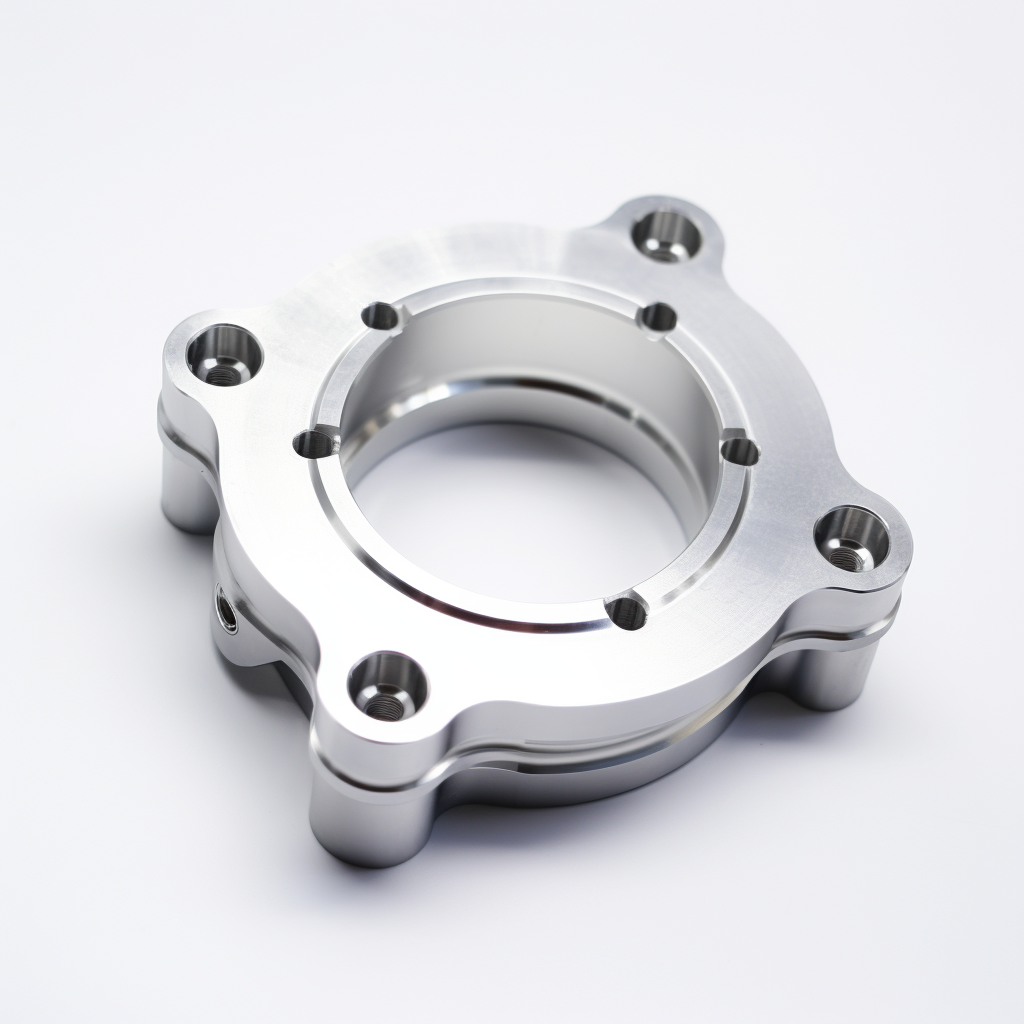
Titanium Metal Selection Guide
Titanium is a remarkable metal known for its exceptional strength-to-weight ratio, corrosion resistance, and biocompatibility. It is one of the most sought-after materials in various industries due to its unique combination of properties. In this web page, we will explore the different types of titanium, its numerous advantages and disadvantages, and the diverse industrial uses where titanium plays a crucial role.
Titanium rapid manufacturing, & machined parts are available now!
Check with one of Canyon’s helpful product engineers for an expert material and manufacturing recommendation.
Common names include: Titanium Grade 1, Titanium Grade 2, Titanium Grade 5 (Ti-6Al-4V), Titanium Grade 7, Titanium Grade 9 (Ti-3Al-2.5V), Titanium Grade 12, Titanium Grade 23 (Ti-6Al-4V ELI).

Advantages
- Exceptional Strength-to-Weight Ratio: Titanium is incredibly strong for its low density, making it ideal for applications where weight reduction is crucial, such as aerospace and medical implants.
- Corrosion Resistance: Titanium is highly resistant to corrosion, even in aggressive environments, making it suitable for marine, chemical, and offshore applications.
- Biocompatibility: Titanium is biocompatible and does not react with bodily tissues, making it an excellent choice for medical implants like hip replacements and dental implants.
- High Heat Resistance: Titanium alloys maintain their strength and integrity at high temperatures, making them suitable for use in gas turbines and exhaust systems.
- Low Thermal Expansion: Titanium has a low coefficient of thermal expansion, making it stable and dimensionally accurate over a wide temperature range.
- Low Electrical Conductivity: Titanium is a poor conductor of electricity, making it suitable for applications where electrical insulation is required.
- Non-Magnetic: Titanium is non-magnetic, making it suitable for applications where magnetic interference is a concern.
- Biocompatibility: Titanium is widely used in medical and dental implants due to its biocompatibility and resistance to bodily fluids.
Disadvantages
- Cost: Titanium is more expensive than many other metals, primarily due to its extraction and processing methods.
- Difficulty in Machining: Titanium is challenging to machine due to its high strength and low thermal conductivity, which can increase manufacturing costs.
- Reactivity at High Temperatures: In some high-temperature applications, titanium may react with oxygen, necessitating protective coatings or controlled atmospheres.
- Brittleness at Low Temperatures: Some titanium alloys can become brittle at very low temperatures, limiting their use in cryogenic applications.
Common Applications of Titanium
- Aerospace: Titanium is used extensively in aircraft components, including airframes, landing gear, and jet engines, due to its high strength-to-weight ratio and corrosion resistance.
- Medical: Titanium is used in medical implants such as hip and knee replacements, dental implants, and surgical instruments due to its biocompatibility.
- Chemical Processing: Titanium is used in chemical processing equipment, heat exchangers, and storage tanks due to its corrosion resistance.
- Marine: Titanium is used in marine applications for its corrosion resistance in saltwater environments, including ship hulls and propellers.
- Power Generation: Titanium is used in power generation applications, including gas turbines, heat exchangers, and condensers, due to its heat resistance.
- Automotive: Titanium is used in automotive components like exhaust systems and valves for its heat resistance and strength.
- Sports Equipment: Titanium is used in sports equipment, such as golf clubs and bicycle frames, to reduce weight while maintaining strength.
- Oil and Gas: Titanium is used in the oil and gas industry for offshore platforms, pipelines, and subsea equipment due to its corrosion resistance and low thermal conductivity.
Please consult a Canyon Components Engineer about your specific application and we will use our decades of experience to formulate a solution that fits your need.
Types of Titanium
Titanium can come in different variations, depending on its composition and intended use. Some common types of Titanium include the following.
Canyon Components strives to meet all customer service requests. Feel free to contact Canyon Components engineering and let our knowledgeable staff help you design the perfect part for your needs.
Titanium Grade 1
The most ductile and softest titanium alloy, known for its formability and corrosion resistance. It's primarily used in applications requiring high corrosion resistance and weldability, such as chemical processing and marine environments.
Titanium Grade 2
Slightly stronger than Grade 1, with similar corrosion resistance. This grade is widely used for its balance of strength and ductility. Common applications include aerospace structures, power generation, and medical devices.
Titanium Grade 5 (Ti-6Al-4V)
The most commonly used titanium alloy, known for its high strength and heat resistance. It's used extensively in aerospace, medical implants, and high-performance automotive components. This grade can be heat-treated for higher strength.
Titanium Grade 7
Similar to Grade 2 but with added palladium for enhanced corrosion resistance, particularly against reducing acids. It's used in chemical processing and storage where corrosion resistance is critical.
Titanium Grade 9 (Ti-3Al-2.5V)
Known for its high strength and corrosion resistance, combined with good weldability and formability. This grade is used in aerospace hydraulic systems, sporting equipment, and marine applications.
Titanium Grade 12
An improved corrosion-resistant grade with added molybdenum and nickel. It offers enhanced heat resistance and strength, making it suitable for chemical processing, marine, and aerospace applications where higher stress levels are encountered.
Please consult a Canyon Components Engineer about your specific application and we will use our decades of experience to formulate a solution that fits your need.
Manufacturing Options for Titanium
Titanium parts can be manufactured using several methods, each suitable for different applications and part complexities.
Each of these methods has its own advantages, limitations, and cost implications. The choice of manufacturing technique usually depends on factors like the complexity of the design, required precision, material properties, and production volume.
Canyon Components strives to meet all customer service requests. Feel free to contact Canyon Components engineering and let our knowledgeable staff help you design the perfect part for your needs.
Back to Metals Hub

Get A Quote Now!

Groove Design References
Learn More
Coatings, Packaging, & Other Services
Learn More
Custom Parts & Custom O-rings
Learn More
